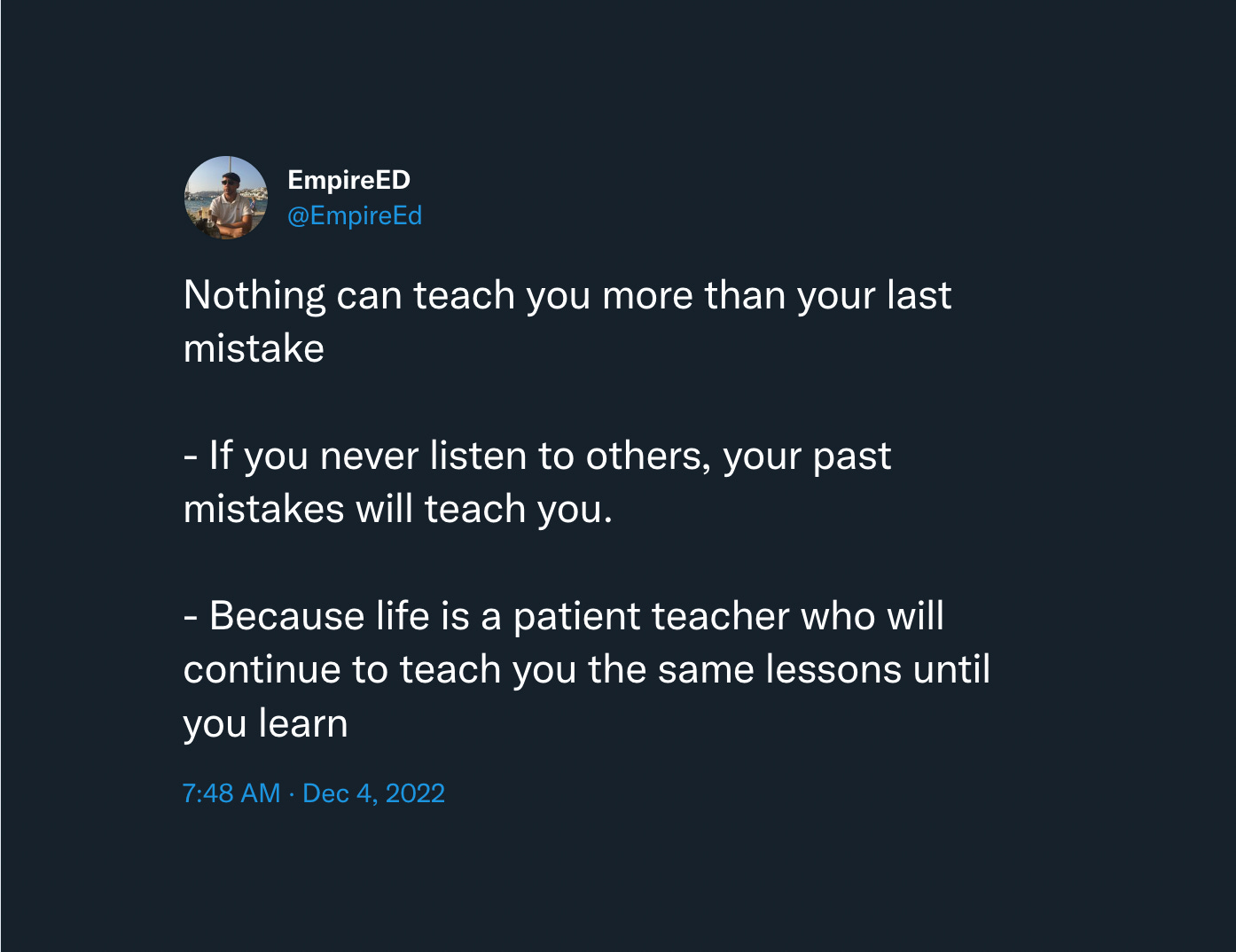“Consider “future” not as a noun but as a verb. Future as a verb invites creativity, innovation, and dynamic presence. Short-termism has limited possibilities. The long path shows us that there is more — much more. And it’s up to us to co-create that.” — Ari Wallach
Long-term planning is challenging. With all the pressures and distractions of daily life, it’s often a hassle to stop and consider whether what we’re doing at any given moment is on track toward our future goals.
And if the answer is no, it often takes even more effort to change course and sacrifice immediate gratification for long-term gain.
Even though some people might prefer to avoid thinking about the future, we must consider our actions’ moral implications.
Below I’ve unpacked some of my thoughts on long-termism in relation to presentism, intergenerational equity, personal responsibility, and more.
The Dangers of Presentism
In recent years, there’s been an increased focus on what psychologists call “present bias” or “presentism.” This refers to our natural tendency to value immediate rewards more than future rewards — even when the future rewards are much greater.
In other words, we often choose what makes us happy at the moment over what would make us happier in the long term.
For example, you might choose to watch another episode of Netflix instead of going for a run because the former provides instant gratification while the latter requires delayed gratification.
Of course, there’s nothing wrong with indulgences.
The problem arises when presentism becomes a habitual way of life, preventing us from ever achieving our long-term goals.
Living in a state of chronic presentism means prioritizing short-term pleasures over long-term benefits, regardless of whether those benefits are individual or collective.
It leads to a never-ending consumption cycle without any real thought given to the future — which is not sustainable in the long run.
Intergenerational Equity
One reason it’s essential for everyone — not just the privileged few — to think long-term is because of intergenerational equity.
This refers to the idea that we have a moral obligation to ensure that future generations have access to the same resources and opportunities that we do — or even better resources and opportunities.
In other words, we shouldn’t be leaving future generations with less than what we currently have; instead, we should strive to leave them with more.
This way of thinking challenges us to view humanity not as individuals competing against each other but as members of one big family spanning many generations — past, present, and future.
It asks us to consider what benefits us in the short term and what will benefit humanity in a long time.
Only by thinking this way can we hope to achieve sustainability — socially, economically, and environmentally.
“Ignoring the facts for short-term gain will almost always bring long-term pain.” — Eldon Henson
Personal Responsibility vs. Collective Responsibility
When it comes time to take action on behalf of Future People, who should bear the brunt of that responsibility?
Is it something that falls on the shoulders of governments and businesses? Or do individuals also have a role to play?
I believe it’s vital for each one of us to assume responsibility for our actions and their impact on both present and future generations.
Of course, this doesn’t mean governments and businesses don’t have a role to play — they do! But they cannot shoulder all the responsibility; we must also do our part to make lasting change happen.
The Shortcut Myth
We live in an age where we are bombarded with information and advertisements telling us that there is a shortcut for everything.
You can get rich quickly, become famous overnight, learn a language in just 30 days — the list goes on.
And while it’s true that some of these shortcuts may provide short-term benefits, they won’t all lead to long-term success.
Why?
Because long-term success requires consistent effort over some time — it requires vision and commitment to one’s goals and dreams. It requires dedication, discipline, resilience, hard work, and patience.
The truth is that there is no quick fix — no silver bullet — and no shortcut to success.
It requires hard work and dedication — which might not always be the most enjoyable path in the short term.
In the end, taking a long-term approach yields far greater rewards than any instant gratification could provide. It allows us to make a lasting contribution — for ourselves and others.
Shortcuts impact our ability to think long-term, as they are often at odds with the commitment and dedication necessary to create lasting change.
Shortcuts can be tempting, but they rarely lead to sustainable success. Only a long-term approach will do when it comes to making a difference for future generations.
Living in the present is essential; it’s how we savor life’s joys and appreciate the beauty in everyday moments. But if we want to ensure that those moments are available for future generations. We must also think of them — the Future People — and consider what needs to be done today to ensure a better tomorrow.
Shortcuts can also affect our psychology since they often lead to feelings of guilt, regret, or disappointment.
For example, if we take shortcuts when completing a project, we may feel proud and satisfied in the short term but then experience guilt and self-doubt after realizing that our work has been substandard.
When we take shortcuts in life, it’s easy to get caught up in immediate gratification and ignore the long-term consequences of our actions. This can make us less motivated to strive for excellence and instead settle for mediocrity — not just about our lives but also about what kind of world we leave behind.
Why We Need To Take The Long Path
The long path is the path that is often not taken. It’s the road less traveled. It’s the route that takes time and patience. Still, it will lead you to your destination much more meaningfully.
Taking the long path requires us to step back and evaluate our choices rather than accepting what is immediately available.
It pushes us to ask ourselves questions such as: How will this decision affect me in five years? Will I still be happy with my choice when I look back on it ten or twenty years from now?
Thinking along these lines helps us make beneficial decisions for all involved.
When we choose the long path, we think about more than short-term gains; instead, we consider how our current actions can shape the future of humanity and ensure a better world for generations to come.
“You will make better decisions once you begin thinking long-term rather than short-term.” — Adam Smith
Is “Longtermism” Only for the Privileged?
Grasping long-term thinking is difficult for anyone, but it’s especially tough if you’re living day by day.
That doesn’t mean “long-termism” isn’t for you if you’re not privileged, though — long-term vision may help less privileged people become themselves and get out of poverty.
Long-term thinking is often viewed as a luxury for the privileged. After all, those with the means and opportunity to think beyond their lifetimes are generally in better positions than those facing more immediate concerns, such as a lack of shelter and hunger.
But, this perspective overlooks that everyone — regardless of their socio-economic status — has a vested interest in creating a better future for our children and grandchildren.
Whether we’re wealthy or poor, our actions today will shape the lives of tomorrow.
No matter our financial standing, we can all build a brighter future by acting with long-term rather than short-term gratification.
In conclusion, although long-term thinking may be challenging, it’s something we should all strive for nonetheless.
By taking personal responsibility for our actions and their impact on Future People, we can help create a better world for everyone — not just ourselves but those who come after us.
What’s more important than that?
© BELUMA, LLC t/a Beyond Two Cents. All Rights Reserved.
DID YOU KNOW?
Peanuts aren’t nuts but instead are members of the legume family.
The name Google was created by accident.
The aging process has been reversed successfully.






